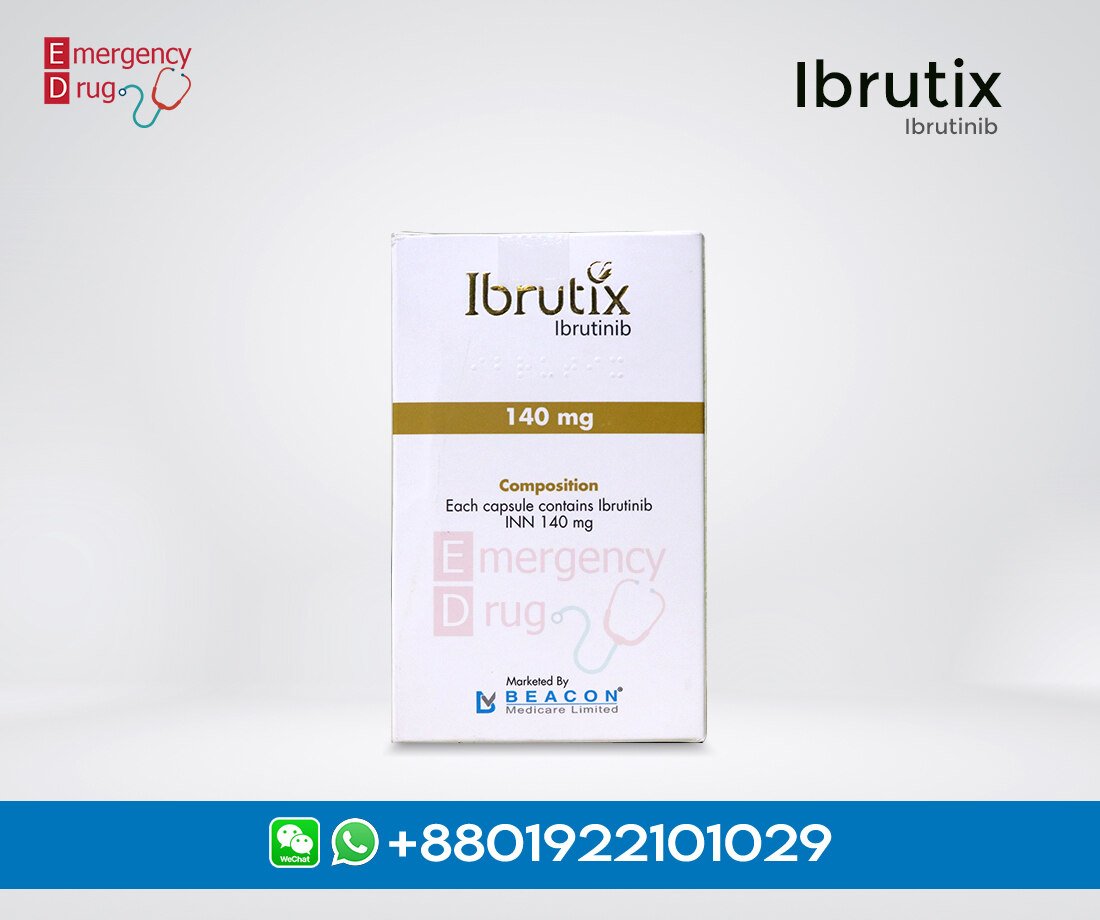Description
Ponaxen (Ponatinib) 15 mg use in adults to treat a type of blood cancer called chronic myeloid leukemia (CML), or Philadelphia chromosome positive acute lymphoblastic leukemia (ALL). Ponatinib is usually given after other treatments have failed. Ponatinib may also use for purposes not listed in this medication guide.
Product Features:
| Product Name | : Ponaxen |
| Generic Name | : Ponatinib |
| Manufacturer | : Everest Pharma Ltd |
| Indication | : Chronic lymphocytic leukemia |
| Formulation | : Tablet |
| Strength | : 15 mg |
| Quantity | : 30 Tablets |
| Storage | : Below 25°C |
| Registrations | : Export Only |
Ponaxen 15 mg price : $150.00 per strip
Before taking this Ponaxen (Ponatinib) 15 mg
You should not use ponatinib if you are allergic to it.
Tell your doctor if you have ever had:
- Heart failure, high blood pressure, heart rhythm problems;
- Long QT syndrome (in you or a family member);
- A stroke or blood clot;
- Diabetes;
- High cholesterol;
- Liver disease;
- Bleeding problems;
- Lactose intolerance (tablets may contain lactose);
- Pancreatitis; or
- If you’ve had surgery within the past 2 weeks.
You may need to have a negative pregnancy test before starting this treatment. Ponaxen (Ponatinib) may harm an unborn baby. Use effective birth control to prevent pregnancy while you are using ponatinib and for at least 3 weeks after your last dose.
This medicine may affect fertility (ability to have children) in women. However, it is important to use birth control to prevent pregnancy because ponatinib can harm an unborn baby. You should not breastfeed while using ponatinib and for at least 6 days after your last dose.
Taking Ponaxen (Ponatinib)
Follow all directions on your prescription label and read all medication guides or instruction sheets. Your doctor may occasionally change your dose. Use the medicine exactly as directed. Ponaxen (Ponatinib) is usually taken once daily, with or without food. Swallow the tablet whole and do not crush, chew, or break it.
You may need frequent medical tests to be sure this medicine is not causing harmful effects. Your cancer treatments may be delayed based on the results. If you need surgery, tell the surgeon ahead of time that you are using ponatinib. You may need to stop using the medicine at least 1 week before a surgery.
Do not stop taking ponatinib or change your medication dose without your doctor’s advice.
Store at room temperature away from moisture and heat.
If miss a dose
Take the medicine as soon as you can, but skip the missed dose if it is almost time for your next dose. Do not take two doses at one time.
Avoid while taking ponatinib
Grapefruit may interact with ponatinib and lead to unwanted side effects. Avoid the use of grapefruit products.
Side Effects of Ponaxen (Ponatinib)
Get emergency medical help if you have signs of an allergic reaction: hives; difficult breathing; swelling of your face, lips, tongue, or throat.
Ponatinib may cause heart or blood vessel problems that could lead to heart attack or stroke. Call your doctor right away or get emergency medical help if you have:
- Heart attack symptoms–chest pain or pressure, pain spreading to your jaw or shoulder, feeling short of breath;
- Signs of a stroke–sudden numbness or weakness (especially on one side of the body), sudden severe headache, slurred speech, problems with vision or balance; or
- Signs of a blood clot–severe stomach pain, pain or swelling in your arms or legs, coughing up blood.
Call your doctor at once if you have:
- Dizziness, confusion, headache, change in mental status;
- A seizure;
- Swelling, rapid weight gain, feeling short of breath;
- A wound that will not heal;
- Eye problems–vision problems, eye pain or swelling, bleeding in the eye, increased sensitivity to light, flashes of light or “floaters” in your vision;
- Heart problems–chest pain, shortness of breath, fast or pounding heartbeats, feeling like you might pass out;
- A hole or tear in your stomach or intestine–severe pain or swelling in your stomach with a high fever;
- Low blood cell counts–fever, chills, tiredness, mouth sores, skin sores, easy bruising, unusual bleeding, pale skin, cold hands and feet;
- Nerve problems-muscle weakness, trouble moving your eyes or other parts of your face, tingling, burning pain, numbness in your hands and feet;
- Severe bleeding-nosebleeds, bloody or tarry stools, pink or brown urine, heavy menstrual periods, coughing up blood or vomit that is bloody or looks like coffee grounds; or
- Signs of liver or pancreas problems–loss of appetite, upper stomach pain (that may spread to your back), nausea or vomiting, fast heart rate, dark urine, jaundice (yellowing of the skin or eyes).
Common side effects
- Dry skin, rash;
- Stomach pain, nausea, vomiting, diarrhea, constipation;
- Headache, muscle or joint pain;
- Pain in your arms, hands, legs, or feet;
- Increased blood pressure; or
- Fever, tired feeling.
This is not a complete list of side effects and others may occur. Call your doctor for medical advice about side effects.
Other drugs vs Ponaxen (Ponatinib)
Sometimes this is not safe to use certain medications for the same time. Some drugs can affect your blood levels of other drugs you take, which may increase side effects or make the medications less effective.
Many drugs can affect ponatinib. This includes prescription and over-the-counter medicines, vitamins, and herbal products. Not all possible interactions are listed here. Tell your doctor about all your current medicines and any medicine you start or stop using.
Warnings
Ponatinib may cause heart or blood vessel problems that could lead to heart attack, stroke, or death.
Call your doctor or get emergency medical help if you have: chest pain spreading to your jaw or shoulder, shortness of breath, dizziness, severe stomach pain, swelling in your legs, sudden numbness or weakness, headache, or problems with vision or speech.
Ponatinib may causes harm your liver. Call your doctor right away if you have upper stomach pain with loss of appetite, dark urine, bruising, or yellowing of your skin or eyes.
For any inquiries please contact us
For more Oncology medicine, visit our SHOP
Ponaxen (Ponatinib) 15 MG - 30 Tablets - Buy Medicine Online

Ponaxen (Ponatinib) use to treat adults with chronic myelogenous leukemia or Philadelphia chromosome-positive acute lymphoblastic leukemia.
Product Brand: Ponaxen 15 MG
Product Currency: USD
Product Price: 150
Product In-Stock: InStock
5







Reviews
There are no reviews yet.